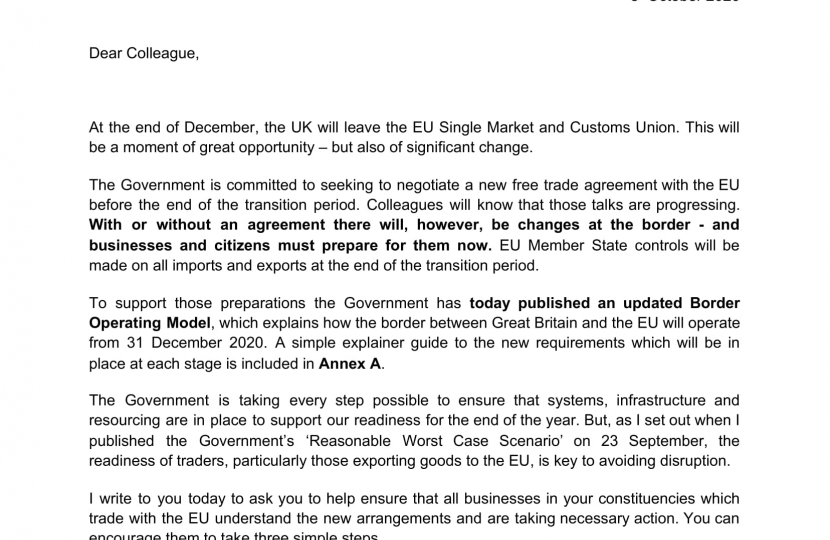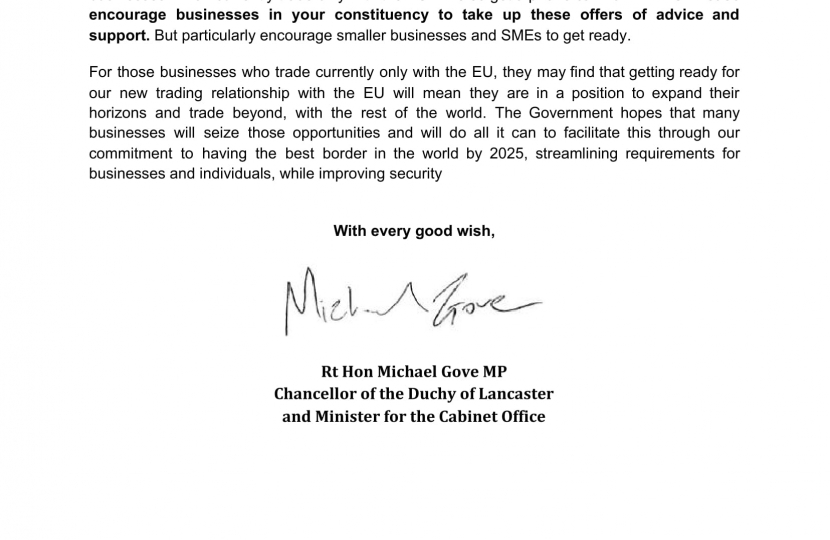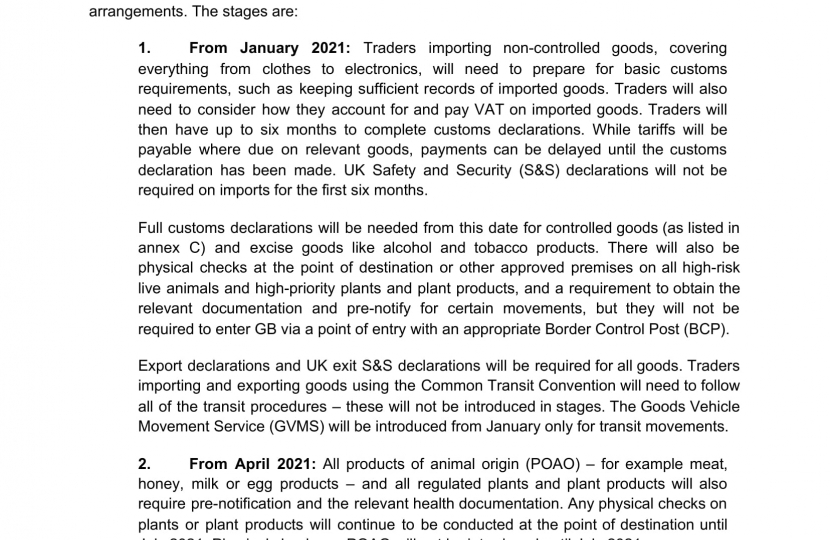At the end of December, the UK will leave the EU Single Market and Customs Union. This will be a moment of great opportunity – but also of significant change.
The Government is committed to seeking to negotiate a new free trade agreement with the EU before the end of the transition period. Colleagues will know that those talks are progressing. With or without an agreement there will, however, be changes at the border - and businesses and citizens must prepare for them now. EU Member State controls will be made on all imports and exports at the end of the transition period.
To support those preparations the Government has today published an updated Border Operating Model, which explains how the border between Great Britain and the EU will operate from 31 December 2020. A simple explainer guide to the new requirements which will be in place at each stage is included in Annex A.
The Government is taking every step possible to ensure that systems, infrastructure and resourcing are in place to support our readiness for the end of the year. But, as I set out when I published the Government’s ‘Reasonable Worst Case Scenario’ on 23 September, the readiness of traders, particularly those exporting goods to the EU, is key to avoiding disruption.
I write to you today to ask you to help ensure that all businesses in your constituencies which trade with the EU understand the new arrangements and are taking necessary action. You can encourage them to take three simple steps.
Firstly, if they do not already have a GB EORI number (a number which helps customs identify their goods) they should go online and apply for one. They will need this to trade with the EU after 31 December 2020.
Secondly, they should decide how they want to fulfil new customs requirements – some businesses will do this themselves; many will want to use a customs agent or intermediary and should identify one now.
Thirdly, they should talk to the businesses in the EU with whom they trade. Those businesses will have to comply with new import and export requirements from the end of the transition period, including those of Member States.
These steps will be important for all businesses which trade with the EU. For those who trade in food, agrifood, controlled or specialist goods, there will be additional requirements which are detailed in the Operating Model. The Operating Model does not cover the movement of goods under the Northern Ireland Protocol, and separate advice is available for businesses on this.
Businesses should go to gov.uk/transition to use the transition checker which will help them understand not just new border requirements but all of the steps they need to take to be ready for the end of the transition period.
On gov.uk, businesses will find a range of simple explainer guides. They will also find information about webinars which the Government is organising to provide expert advice. Large businesses which currently trade only with the EU will also get a phone call from HMRC. Please encourage businesses in your constituency to take up these offers of advice and support. But particularly encourage smaller businesses and SMEs to get ready.
For those businesses who trade currently only with the EU, they may find that getting ready for our new trading relationship with the EU will mean they are in a position to expand their horizons and trade beyond, with the rest of the world. The Government hopes that many businesses will seize those opportunities and will do all it can to facilitate this through our commitment to having the best border in the world by 2025, streamlining requirements for businesses and individuals, while improving security






